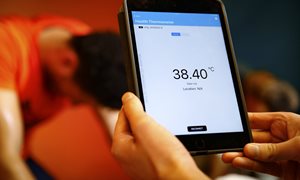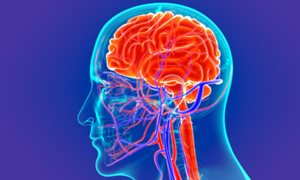 Physical activity and exercise training are effective strategies to reduce the risk for cardiovascular events.
Physical activity and exercise training are effective strategies to reduce the risk for cardiovascular events.
This was shown in a follow-up study by Vincent Aengevaeren and Thijs Eijsvogels, members of the theme Vascular damage, which was published this month in the Journal of the American College of Cardiology: Cardiovascular Imaging.
A total of 284 asymptomatic men 45 and older free from overt CVD who participated in sports either competitively or recreationally were included in this study. CT imaging was performed to determine the presence and type of coronary atherosclerosis. Cyclists had a 59% lower prevalence of atherosclerotic plaques compared with runners. Furthermore, calcified plaques, which are related to a lower risk of cardiovascular events, were more 3.5 times more common in cyclists versus runners.
These observations provide novel directions for the underlying mechanisms responsible for accelerated coronary atherosclerosis among middle-aged male athletes. For example, differences in the mode of exercise, running is weight-bearing exercise and cycling is non-weight-bearing exercise, can impact calcium homeostasis and parathyroid hormone levels, and may subsequently impact the development of coronary atherosclerosis. Furthermore, the lower exercise-intensity of cycling versus the higher exercise-intensity of runners may be another factor that could impact the amount of mechanical stress and blood pressure elevations in the coronary system.
Aengevaeren and Eijsvogels are currently initiating the MARC-II trial (Measuring Athletes Risk of Cardiovascular Events: a follow-up study) to further explore the effects of high-volume high-intensity exercise training on coronary atherosclerosis characteristics.
Related news items

Grants for heart and kidney research Two awards to Radboudumc in Open Competition ENW-XS
21 July 2022Two researchers from the Radboudumc receive a grant from the NWO within the Open Competition of the Exact and Natural Sciences. They are Thijs Eijsvogels, who studies the heart, and Pieter Leermakers, who studies the kidneys.
go to page
Your heart rate as a thermometer Research Olympic athletes will be followed up during 4Daagse
18 July 2022Body temperature can be determined from heart rate. This is what research by the Radboudumc among Olympic athletes shows. Athletes can use this method during training to eventually perform better in the heat. The technique is now being further investigated among participants in the 4Daagse.
go to page
Young Investigator Award for Esmée Bakker
14 April 2022 Esmée Bakker received the Young Investigator Award for her abstract ‘Acute and long-term mortality rates among participants of mass-participation sports events versus the general population.’ go to page
Want to be sustainable and cool? Choose fans more and aircon less Keep cool and help the environment
12 April 2022 A recent published study led by the University of Sydney, has found using indoor fans more often allows people to reduce their air conditioner use without changing how hot they feel, paving a way for reducing future energy use and greenhouse gas emissions. Coen Bongers, is one of the co-authors. go to page

